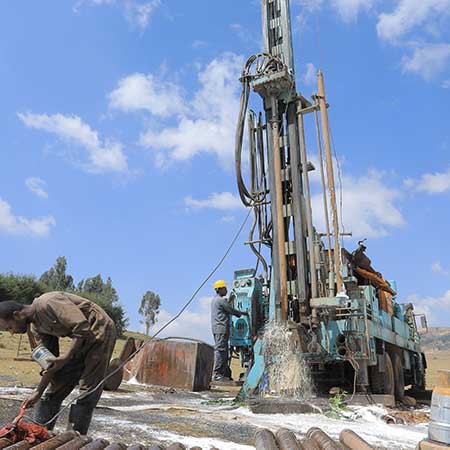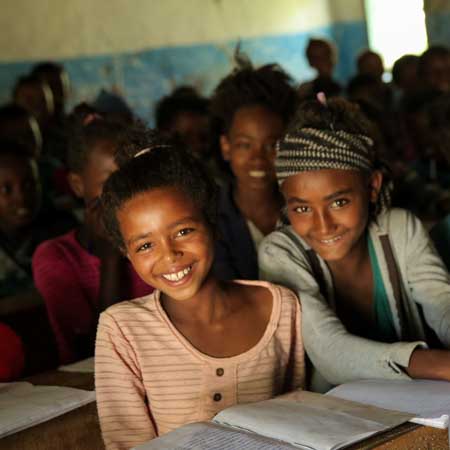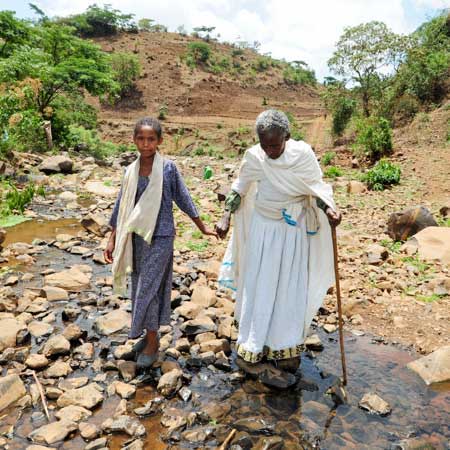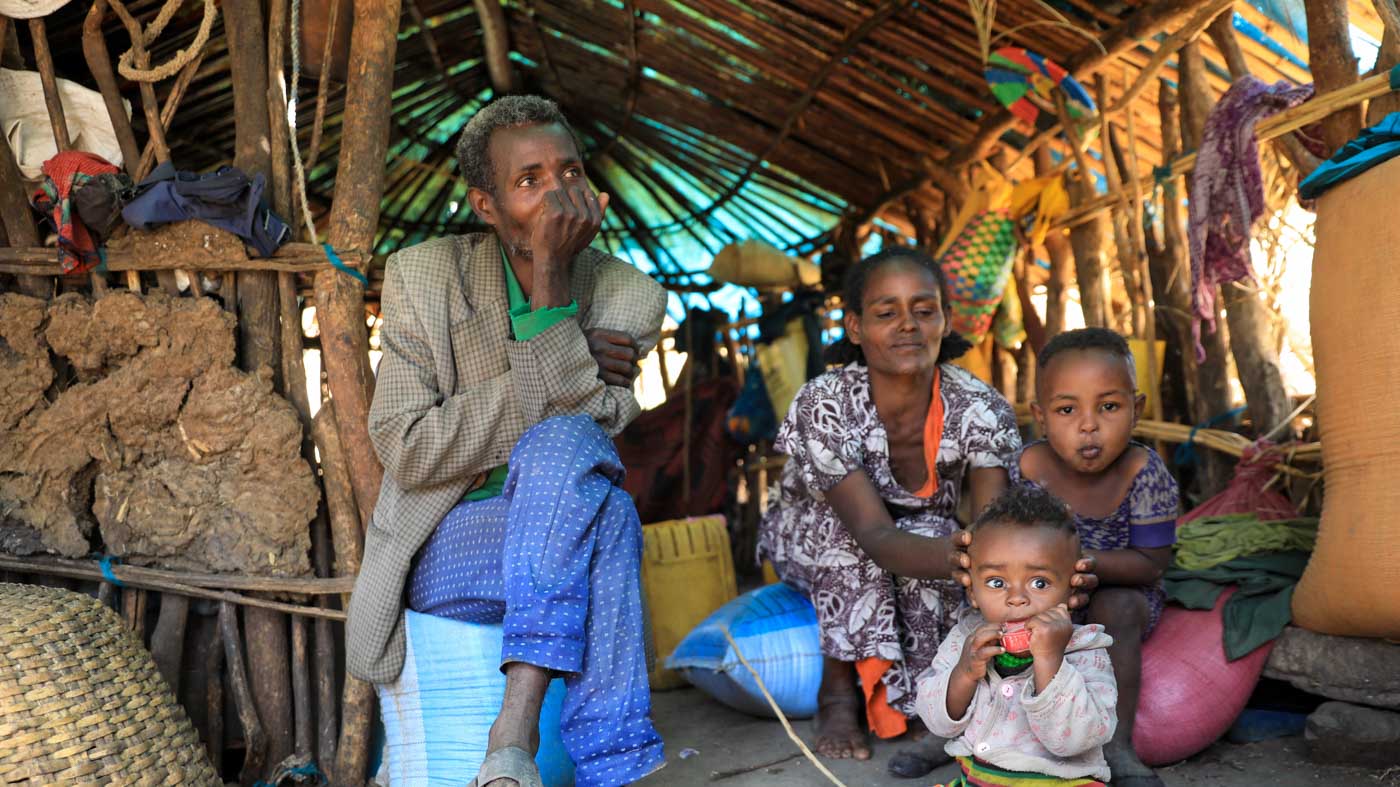
A better life for my children
Where hope grows
71,000 people live in the newest project region Chobi, where Menschen für Menschen has begun working in 2021. Tasissa is one of them. A father living with his family in a tiny straw hut, he describes the difficult situation they find themselves in: “Our roof is just a simple plastic tarp and our hut has only one room, which we use to both sleep and cook. I can’t afford any furniture for my family, so we all have to sleep on the floor.” Like so many families in the region, they lack the land to yield a sufficient crop.
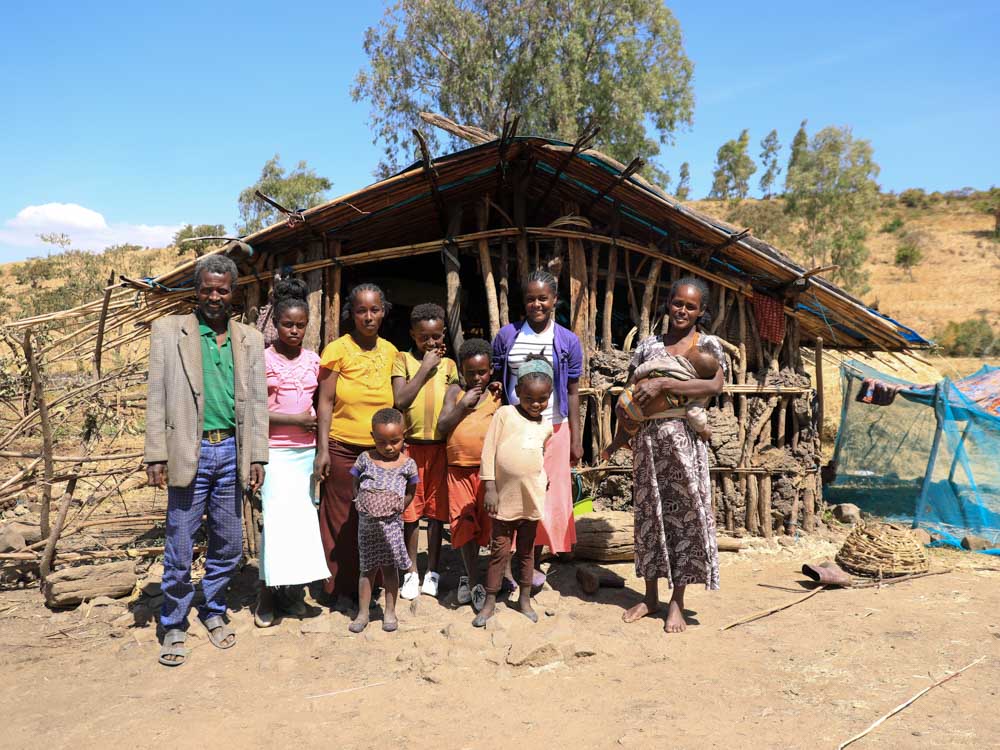
This tiny hut is where Tassisas’ family lives, cooks and sleeps. Beds are nowhere to be found.
The crop only lasts three months
“I have less than a hectare of land to farm grains”, says Tasissa, “and the crop only lasts us three months.” After that, the family depends on the extra income, which all family members generate through hard work: Tasissa produces traditional granaries out of wood and straw, while his daughters support the family by manufacturing baskets. Still, their income isn’t nearly enough. “Especially now, with the market prices rising, our situation continues to worsen. Clothing we can’t afford anyway, but these days I often have to think about, whether I can even afford anything to eat.”
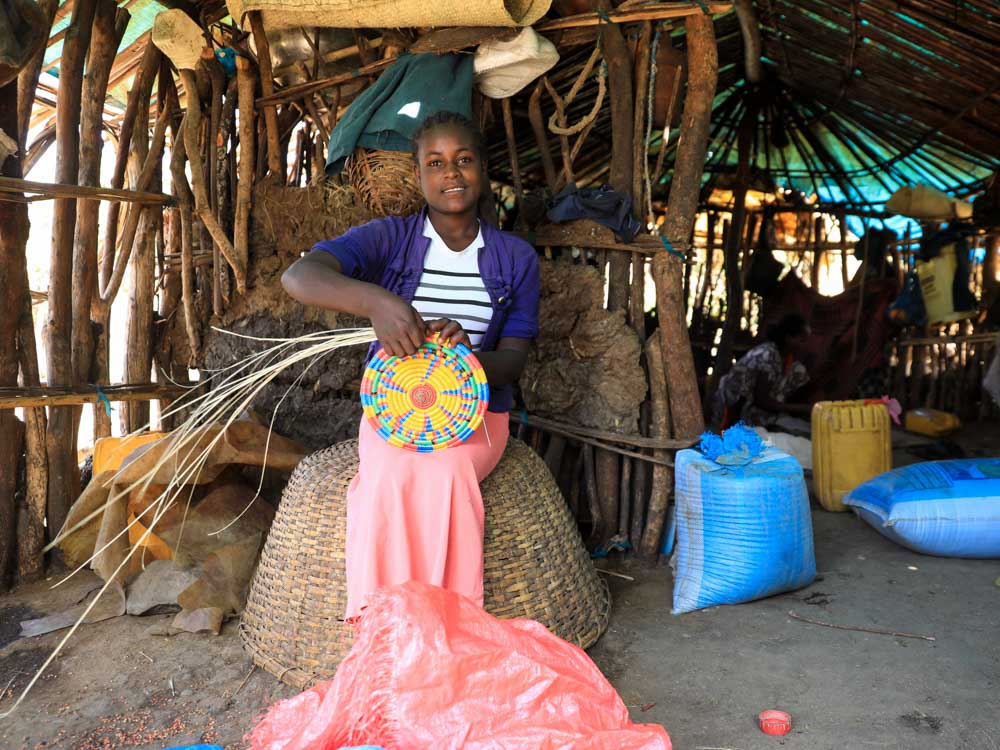
Daughter Getu manufactures baskets to support the family with the little she earns through selling them.
A seed of hope
Recently, Tasissa has started growing vegetables. He has designated a quarter of a hectare of land around the family hut to sow the seedlings he has received from Menschen für Menschen. The family father is hopeful: “I just wish that I can provide enough substantial food for my children. Enough to get us through the year.” A wish he shares with many fathers and mothers in the region. Many families in Chobi have only a small piece of land, most of them barely enough to yield sufficient crop to support the whole family.
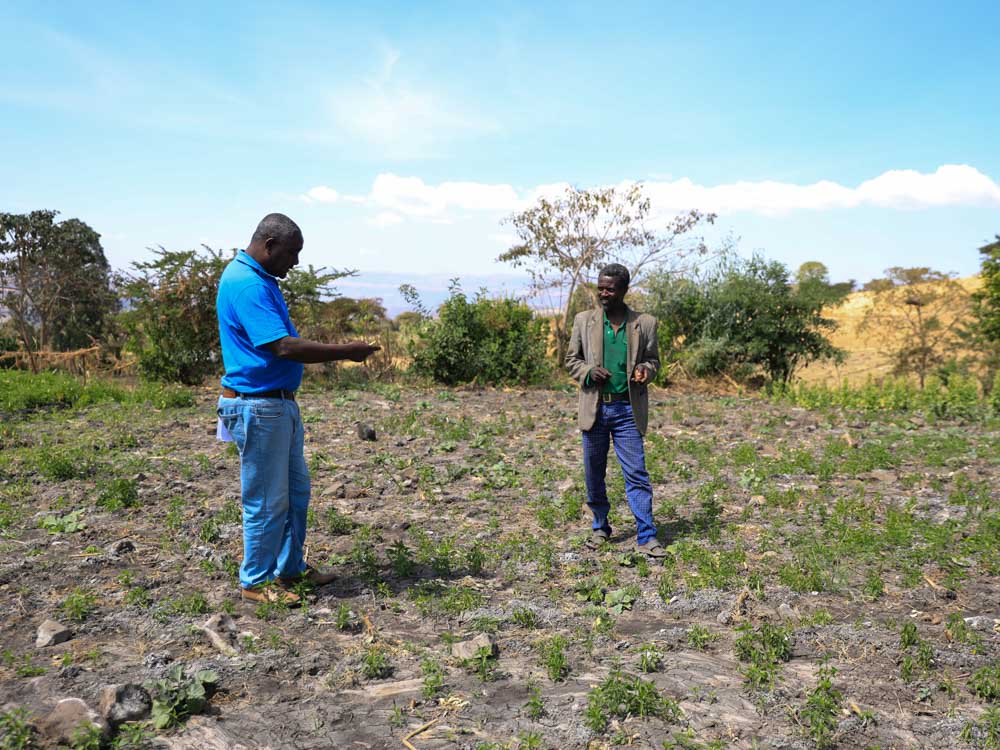
A glimmer of hope: Tasissa has started growing vegetables. Project coordinator Berhanu checks in on the progress.
Two thirds without clean water
Especially when it comes to access to clean drinking water it becomes apparent, how urgently the region needs support. Around two thirds of the people in Chobi have no access to clean drinking water, but rather must tediously draw water from unprotected, dirty water points. Tasissa describes the situation: “It takes almost 45 minutes to fill up a canister with water. We share the water point with animals, which frequently makes my children sick with diarrhea.” Just like in the neighboring regions, the focus in Chobi is to ensure the supply of clean drinking water first.
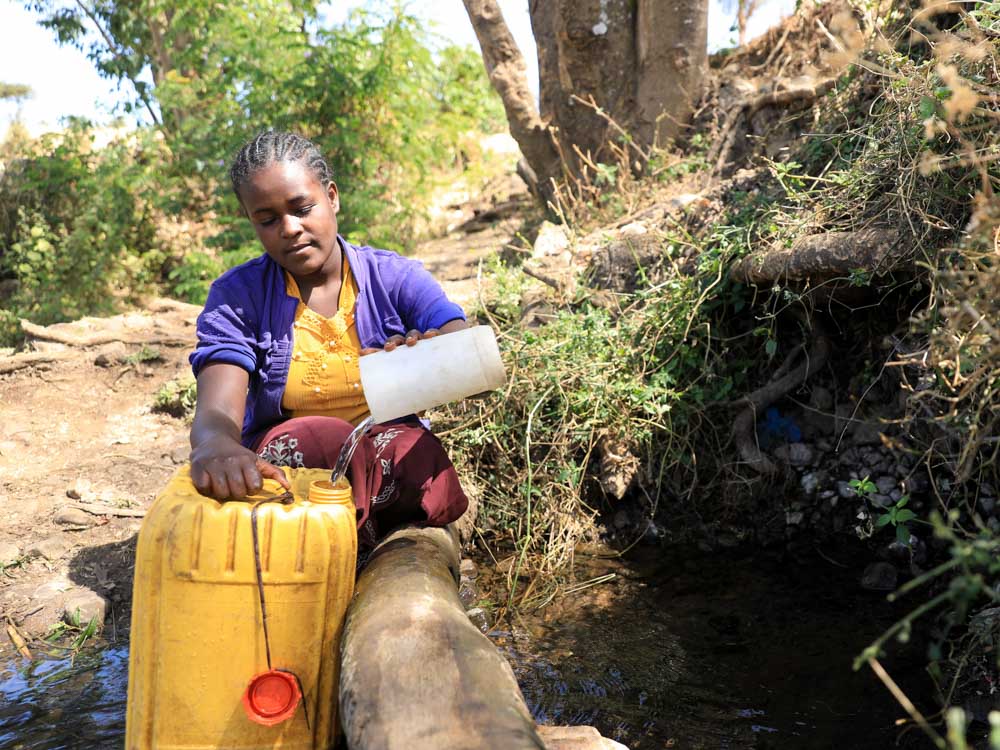
Like Getu, two thirds of the population of Chobi must tediously collect water from unprotected water points.
Your donation helps families like that of Tasissa to live an independent life.



